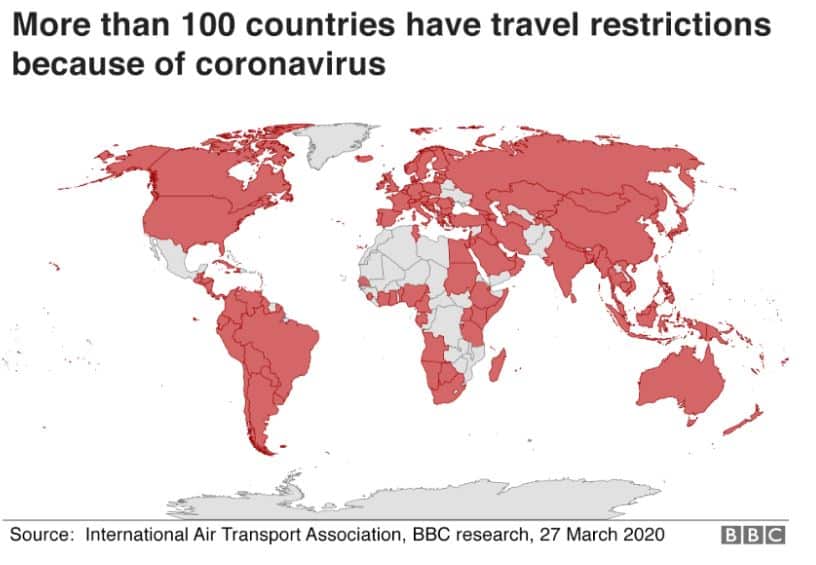The Big Picture- RSTV, UPSC Articles
Road Ahead for Tourism & Hospitality Industry
Archives
TOPIC: General Studies 2
- Global Pandemic – COVID-19 and its effects on tourism, aviation and hospitality sector
In News: The Centre’s move to virtually lock its borders down for a month by suspending all existing visas, barring certain categories have brought many sectors to a jerking halt. Panic over coronavirus spread has hit several sectors, but the cascading effect of the global coronavirus pandemic is crippling the tourism and hospitality industry at an “astonishing pace”.
According to industry chamber CII, this is the one of the worst crises ever to hit the Indian tourism industry impacting all its geographical segments – inbound, outbound and domestic, almost all tourism verticals – leisure , adventure, heritage, MICE, cruise, corporate and niche segments.
- Media reports suggest Foreign Tourist Arrivals (FTA) in India have come down by about 67 per cent annually in the January-March quarter, while for domestic tourists, the figure is lower by nearly 40 per cent.
- The travel and tourism sector alone accounted for 9.2 per cent of India’s GDP in 2018, and generated 26.7 million jobs in that year.
Governments around the world have introduced travel restrictions to try to contain the virus.
The World Travel and Tourism Council has warned the COVID-19 pandemic could
- Cut 50 million jobs worldwide in the travel and tourism industry: Of the 50 million jobs that could be lost, around 30 million would be in Asia, seven million in Europe, five million in the Americas and the rest in other continents
- Asia is expected to be the worst affected.
- Once the outbreak is over, it could take up to 10 months for the industry to recover.
- The tourism industry currently accounts for 10% of global GDP.

In India
While the tourism sector has struggled even before the pandemic, it remains, according to the Economic Survey 2019-20, “a major engine of growth, contributing to GDP [gross domestic product] and foreign exchange earnings”.
The share of tourism in India’s GDP was 5.06% in 2016-17, down from 5.81% from 2014-15, according to the tourism ministry’s latest annual report cited above.
Information technology, banking/financial services and pharmaceuticals have no doubt felt the sting of the virus, but they are not as dependent on the physical mobility of people, and their comfort with the idea of travel, both of which have been casualties of the current crisis. Also, states relying heavily on income from tourism, such as Kerala and Himachal Pradesh, would feel the effects more.
The Way Forward
Tourism needs to be included as a priority in future recovery efforts.
- Governments to remove or simplify visas wherever possible, cut travel taxes and introduce incentives once the epidemic is under control
- Element of flexibility to be introduced – for travelers to be able to postpone and not cancel their plans.
- UNWTO has underscored the importance of international dialogue and cooperation and emphasized that the COVID-19 challenge also represents an opportunity to show how solidarity can go beyond borders.
- There should be a support fund for twelve months to support basic salaries with “direct transfer” to the affected tourism employees.
- A national tourism task force of all relevant ministries of the central government along with ministry of tourism and chief secretaries of State governments and industry stakeholders to meet regularly to fast-track all tourism investment approvals, may be considered.
- Emphasis can be put on the need and potential to tap domestic tourism and the impact that social media has in capturing the imagination of potential travellers as the way forward to come out of the situation.
Connecting the Dots:
- Each disaster has a common feature: The Tourism sector comes to a standstill
- ‘The closing down of the iconic Taj Mahal last month is an evocative symbol of how India’s travel and tourism landscape has changed due to COVID-19’. Outline the steps India can take to mitigate the harmful effects of COVID-19 on the tourism sector.













